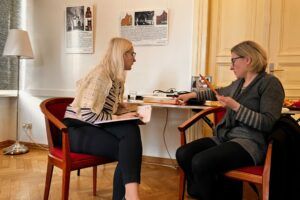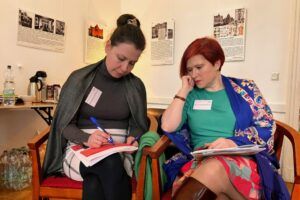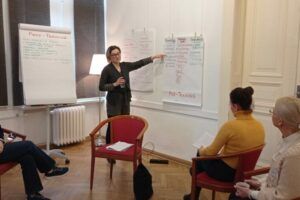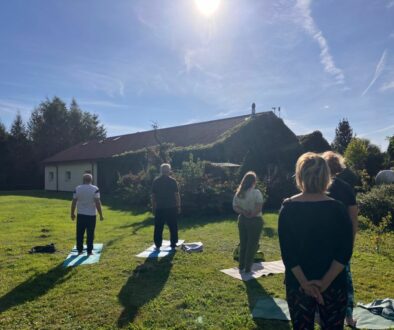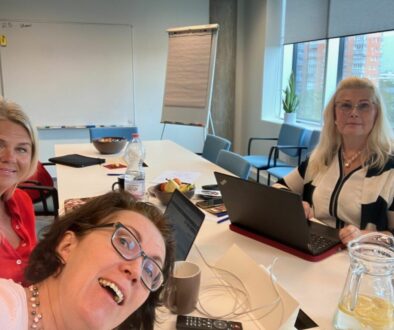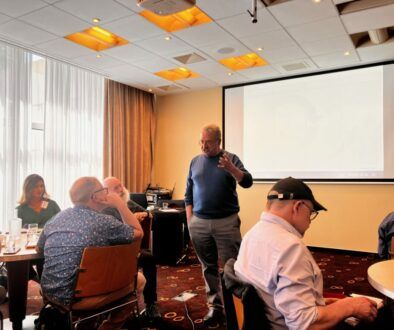Train the Intercultural Trainer for the Multilingua School teachers in Estonia.
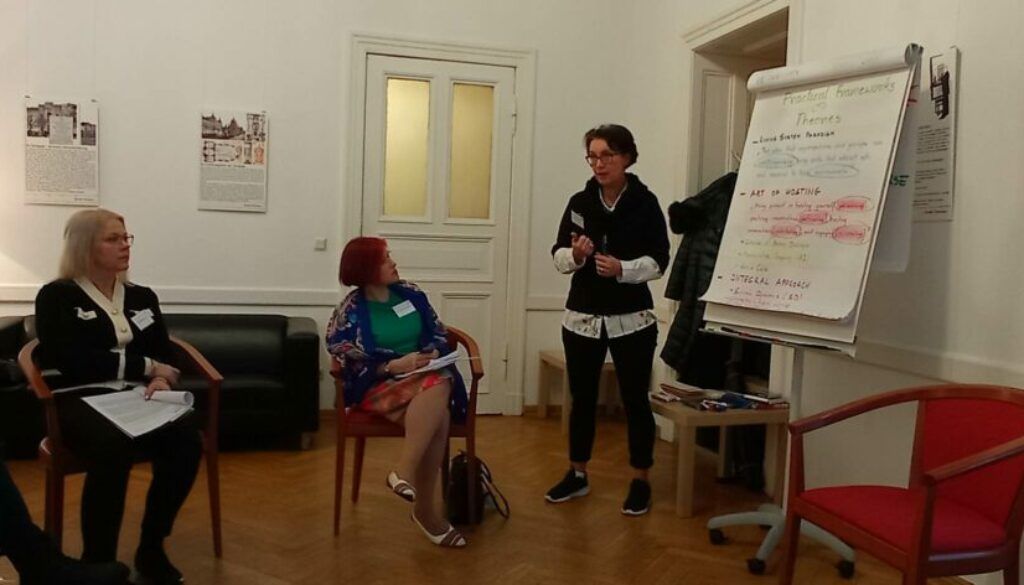
January 2023 – We have created a cohesive concept of an Train the Trainer Course using Wilber’s AQAL model as a conceptual framework, incorporating such factors as trainer’s states of focus, i.e., focus on self, the group, the process and the program, as well as developmental phases and major personality traits of to-be trainers. In our Trainer Model, the person of the trainer is always the key factor. Development of your trainees depends on you, your potential, resourcefulness and openness. It is thanks to you that they are able to acquire new skills, succeed in professional life, and also embrace changes for the better in their personal lives.
Having the AQAL in mind the Train Trainer program gives you an opportunity for conscious, harmonious and steadily development in all dimensions and levels of functioning as a human and a trainer: I-WE-SYSTEM (Figure 1). Such system takes equally into  account the physical (“Trainer’s Presence”), cognitive (“Trainer’s Know-how”), affective (“Trainer & Group”) and spiritual aspect (“Trainer’s Essence”) and looks for a certain balance between the development and integrity. It includes in multiple ways such dimensions as: subjective experience, objective behaviour intersubjective culture, and inter-objective systems. Each of these four dimensions is equally important and has depth and complexity that develops over time. This involves understanding the complex relationship between the capacity to take multiple perspectives, to interact in meaningful ways with others, and to engage in world-centric ethical action.
account the physical (“Trainer’s Presence”), cognitive (“Trainer’s Know-how”), affective (“Trainer & Group”) and spiritual aspect (“Trainer’s Essence”) and looks for a certain balance between the development and integrity. It includes in multiple ways such dimensions as: subjective experience, objective behaviour intersubjective culture, and inter-objective systems. Each of these four dimensions is equally important and has depth and complexity that develops over time. This involves understanding the complex relationship between the capacity to take multiple perspectives, to interact in meaningful ways with others, and to engage in world-centric ethical action.
—————————————————————
The program was divided into 6 modules:
Module: Trainer’s Essence
Training Objective
- Mission as a trainer and connecting it with personal values and beliefs
- Introduction to the integral approach and AQAL model
- Understanding the integral map and its elements
- Applying integral awareness to orient existing theories and create new ones
By the end of this module, participants will understand the essence of their role as trainers, connect with their personal mission, and integrate the integral approach and AQAL model into their training practice. By employing this training design, participants will gain a deep understanding of their role as trainers, connect with their personal mission, and grasp the foundational concepts of the integral approach and AQAL model.
Module: Trainer Presence
Training Objective
- Focus on personal development as a trainer and human being
- Techniques for managing oneself and developing unique trainer skills
- Secrets of public speaking, confident stage appearance, and overcoming stage fright
- Understanding perceptual positions, rapport principles, and presentation formats
- Psychological tricks and techniques for self-development and self-presentation
By the end of this module, participants will enhance their presence as trainers, develop effective public speaking skills, manage emotions, and cultivate a cohesive and consistent trainer identity. By implementing this training design, participants will enhance their trainer presence, develop effective public speaking skills, manage their emotions, and cultivate a cohesive and consistent trainer identity.
Module: Trainer and the Group
Training Objective
- Emphasis on the role of the group in training sessions
- Establishing authority as a trainer
- Connecting with the group and shaping its dynamics
- Influencing trainees’ emotional and mental states
- Activation of individual learning strategies and resources
- Managing challenging participants and interlocutors
- Understanding group dynamics and guiding developmental processes
- Inspiring and motivating trainees to reach their potential
By the end of this module, participants will understand their role as trainers within a group setting, develop techniques to establish authority and connect with the group, and learn strategies to influence trainees’ emotional and mental states for optimal learning. Participants will also gain insights into group dynamics and acquire skills to cope with challenging interlocutors and participants, guiding the group towards collaboration and self-awareness. They will be equipped to manage group dynamics effectively, influence trainees’ emotional states, and foster collaboration and self-awareness within the group.
Module: Trainer Know-How
Training Objective
- Practical aspects of the training process and program
- Preparation of training sessions from scratch
- Marketing and creating an optimal learning setting
- Working with clients and organizing training programs
- Running group learning sessions and delivering effective presentations
- Designing interactive and engaging trainings using methods, metaphors, games, and techniques
By the end of this module, participants will acquire practical knowledge and skills necessary to effectively prepare and deliver training sessions. They will learn how to work with clients, develop and organize training programs, run group learning sessions, deliver engaging presentations, and design interactive training activities. The participants will have gained the practical knowledge and skills required to effectively prepare, deliver, and facilitate training sessions. They will be equipped with the necessary tools, techniques, and strategies to create engaging and impactful learning experiences for their trainees.
Module: Culture Awareness
Training Objective
- Critical review of concepts and definitions of culture
- Understanding models of culture and culture shock
- Causes and functions of prejudice
- Bottom-up and top-down effects of attitudes and attributions
- Exploring personal and collective identity constructs
- Developing cultural intelligence through knowledge, empathy, self-confidence, and cultural identity
By the end of this module, participants will have a deep understanding of culture and its implications for intercultural training. They will critically review concepts and definitions of culture, explore various models of culture, understand the phenomenon of culture shock, identify the causes and functions of prejudice, and develop cultural intelligence.
Module: Intercultural Competence
Training Objective:
- Examining the construction of race and racial power by law and culture
- Understanding and engaging with cultural differences
- Ethnocentrism, ethnorelativism, and cosmopolitanism
- Communication in intercultural contexts
- Adopting integral practices in daily life
By the end of this module, participants will be able to challenge the construction of race and racial power, understand the continuum of cultural difference from ethnocentrism to cosmopolitanism, and adopt integral practices into their daily lives. They will also develop awareness of all aspects of communication in intercultural contexts.
Dr. Anna Storck


